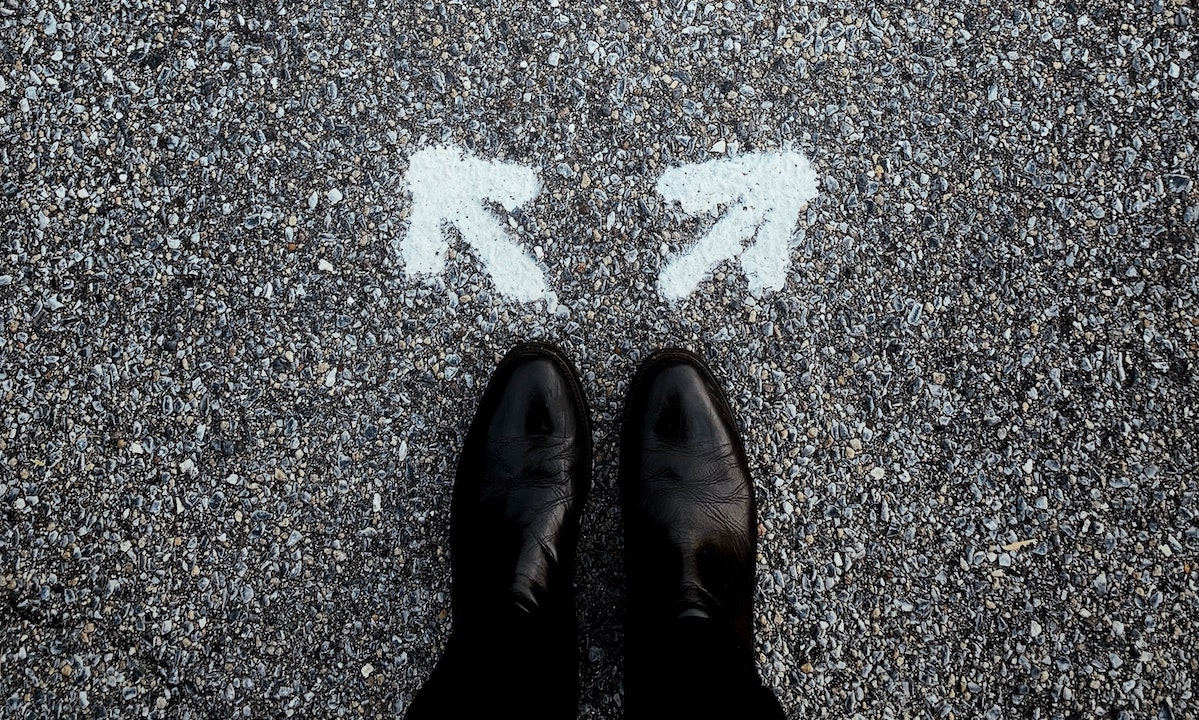For the last two years, some days have required a minimal effort when it comes to decision making. Should I wear black tracksuit pants or grey? Should I have soup or toast for dinner? Now that our lives are starting to open up again, the decisions are getting more complicated and the overwhelm has begun.
Doctors have tracked that by the end of a normal day, we could have made over 35,000 decisions about a range of topics, both simple and complex, some layered with consequences and risk. All of those decisions take time and energy and can deplete us intellectually and emotionally.
Decision fatigue is a real challenge, particularly for those of us who are self-employed and driving our own creative careers. Whether our decisions are as easy as choosing lunch or as difficult as navigating our businesses post-pandemic, the process can be surprisingly exhausting. Decision fatigue is a state of mental overload that causes us to feel overwhelmed, anxious or stressed when faced with a choice. It can seriously impact our wellbeing and our ability to function professionally because it impedes our ability to continue making decisions, even if the decision is a simple one.
Decision fatigue is evidenced by feeling tired, the sensation of brain fog, or other signs and symptoms of physical or mental fatigue. The phenomenon is cumulative, so we feel worse or more drained as we make more decisions.
The four most common symptoms are procrastination, impulsivity, avoidance, and indecision. You may put off deciding until ‘later’, make a rash decision based on little evidence, avoid the decision altogether or battle back and forth between various choices. Over time, the psychological effects of decision fatigue can potentially lead to chronic difficulty in making the right choices, impulse buying or other avoidance behaviours. At its worst, decision fatigue can feel like intellectual paralysis when faced with a choice or even manifest as a panic attack.
To help avoid decision fatigue, try the following:
Streamline your choices. Avoid random decisions where possible, particularly for recurring events. This includes developing daily routines that put less important tasks on autopilot. Choose a roster of clothes you like to wear for the week on a Sunday when you’re more rested. Eat the same breakfast or lunch every day. Use Maps to help you find your way to that meeting. Having fewer tasks and activities that require choice will restore a sense of control over your life.
Delegate decisions. If you can, stop micromanaging and let others in your life make some decisions. Let the person you’re meeting for coffee choose the spot, let your partner choose the playlist when driving, let your friends pick the restaurant. Controlling the small stuff is not significant in the long run and will leave room in your brain for the important choices.
Go big in the morning. For some of us, the morning (maybe after that first coffee) is when we make the most accurate and thoughtful decisions. You are also more likely to be cautious and meticulous before lunch. Fatigue tends to set in more in the afternoon, and by evening our decisions may be more impulsive. Avoid making important decisions when you’re tired or hungry.
Go small in the planning. For big projects and complex decisions, create micro-deadlines that allow for a sequence of smaller choices. This means you aren’t forced to make too many big decisions at the end and can allow you to use your best judgement over the details so the bigger picture will evolve as you plan.
Stop second-guessing yourself. Avoid rehashing decisions and let go of perfectionism. We can waste additional energy worrying about whether we’ve made the right choice. Unless you have moved to the extreme end of decision fatigue, remember that you made the best decision you could at that moment with the information you had at the time. If you’re truly worried, get a second opinion about your choice from a trusted peer or friend.
Seek help if symptoms worsen. While decision fatigue doesn’t warrant a trip to the doctor, it can be a symptom of generalised burnout. If choosing lunch means overwhelming anxiety or a panic attack, take a moment to assess your overall wellbeing. If you notice burnout symptoms like exhaustion, cynicism and low self-efficacy, or if you’re struggling with depression and anxiety, consider seeking professional help.
And when in doubt, have both soup and toast for dinner. It’s a match made in heaven!
Keen to dive deeper? Watch our Decision Tree webinar to learn a simple framework to make the decision-making process a little less painful.





0 Comments